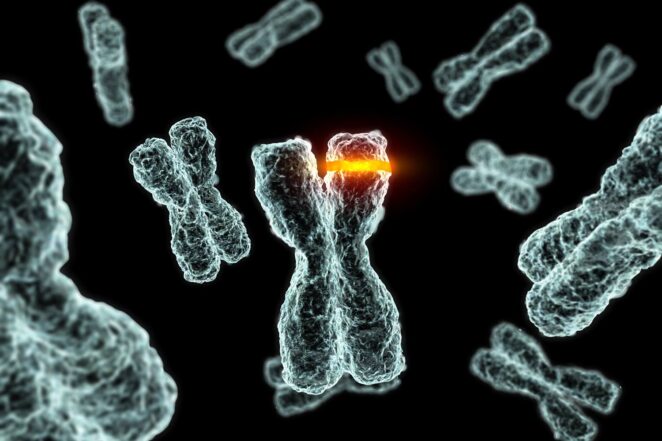Nosebleeds, or epistaxis, are common medical problems that can occur in children and adults. They can be caused by various factors, such as infection, allergies, high blood pressure, and inherited disorders. If you are experiencing repeated nosebleeds, it is crucial to determine the underlying cause so that proper treatment can be administered. In this article, we will discuss seven potential causes of recurrent nosebleeds.
1. Allergies

Allergies are a common trigger for nosebleeds. When your body comes into contact with an allergen, it releases histamine and other chemicals that can cause the blood vessels in your nose to become inflamed and break. It can lead to congestion, runny nose, itching, and nosebleeds. If you have allergies and are prone to nosebleeds, consider using a humidifier to keep the air in your home moist.
It will help to prevent the drying out of your nasal passages, which can lead to nosebleeds.
2. High blood pressure

High blood pressure, or hypertension, is another potential cause of nosebleeds. When your blood pressure is too high, it can strain the blood vessels in your body, including those in your nose, which can cause the vessels to become damaged and bleed. If you have high blood pressure and experience recurrent nosebleeds, it is vital to seek medical treatment to control your blood pressure.
3. Infection
Infections like sinus and upper respiratory infections can also cause nosebleeds, and the inflammation caused by these infections can lead to the breakage of blood vessels in the nose. If you have an infection and are experiencing nosebleeds, it is crucial to seek medical treatment to treat the infection adequately.
Infection can also factor in nosebleeds for those with a weakened immune system. If you have an underlying medical condition that causes immunosuppression, you may be more susceptible to developing nosebleeds due to infection.
4. Trauma

Nosebleeds can also be caused by trauma to the nose. It can occur if you suffer from a nasal injury or undergo a nasal operation, such as a septoplasty. Trauma to the nose can damage the blood vessels and cause them to bleed. If you have suffered from a nasal injury or undergone nasal surgery, it is essential to seek medical treatment to treat the injury appropriately.
5. Medications
Certain medications, such as blood thinners and nasal sprays, can cause nosebleeds. Blood thinners, such as aspirin and warfarin, can increase the risk of bleeding by preventing the blood from clotting properly. Nasal sprays, such as corticosteroids, can also cause nosebleeds by drying out the nasal passages.
If you are taking any medication causing you to experience nosebleeds, it is crucial to speak to your doctor so that an alternative medication can be prescribed.
6. Inherited disorders

Several inherited disorders can cause nosebleeds. One of these disorders is hereditary hemorrhagic telangiectasia, which is a condition that causes the formation of abnormal blood vessels. These vessels are susceptible to breakage and can lead to nosebleeds. Other inherited disorders that can cause nosebleeds include von Willebrand disease and platelet disorders.
Suppose you have been diagnosed with an inherited disorder causing you to experience nosebleeds. In that case, it is crucial to seek medical treatment to manage the condition appropriately.
7. Tumors
Nasal tumors are another potential cause of nosebleeds. These tumors can grow in the nasal passages or sinuses and can put pressure on the blood vessels in the area, and this pressure can cause the vessels to break and bleed. If you have a tumor in your nose or sinuses, it is crucial to seek medical treatment so that the tumor can be removed.
Nosebleeds are a common problem that can have a variety of causes. If you experience recurrent nosebleeds, it is vital to seek medical treatment to identify and treat the cause.
Ways to combat nosebleeds

You can do several things to prevent nosebleeds or reduce their severity. These include:
Humidifier for bloody noses– A humidifier can help to keep the nasal passages moist and reduce the risk of nosebleeds.
Nasal saline spray- Nasal saline spray can also help to keep the nasal passages moist and reduce the risk of nosebleeds.
Avoid picking or blowing your nose- Picking or blowing your nose can irritate the blood vessels in the nose and cause them to bleed. It is vital to avoid these activities if you are susceptible to nosebleeds.
Apply a cold compress- Applying a cold compress to the nose’s bridge can help constrict the blood vessels and reduce bleeding.
Elevate your head- Keeping your head elevated can also help reduce bleeding by keeping pressure off the blood vessels in the nose.
If you experience recurrent nosebleeds, it is essential to seek medical treatment to identify and treat the cause. You can do several things to prevent nosebleeds or reduce their severity, such as using a humidifier, using a nasal saline spray, avoiding picking or blowing your nose, and applying a cold compress. Suppose you have an underlying medical condition causing you to experience nosebleeds. In that case, seeking treatment for the condition is crucial so the nosebleeds can be managed appropriately.



